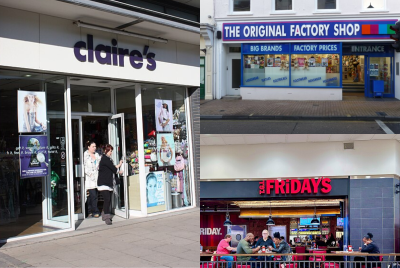Ruby Liu's Hudson's Bay Dream Collapses — Inside the B.C. Billionaire's Retail Empire Gone Wrong
Court ruling ends Ruby Liu's bold bid to reinvent Canada's department stores

B.C. billionaire Ruby Liu's ambitious plan to take over dozens of former Hudson's Bay stores has collapsed after a Canadian court blocked most of her proposed acquisitions.
The Ontario Superior Court ruled on Friday that Liu's company, Central Walk, failed to meet the financial and operational requirements to assume 25 of the 28 retail leases she had sought.
Liu, a Chinese-Canadian real-estate magnate, aimed to transform the shuttered Hudson's Bay sites into a new department-store chain under her own name.
Her proposal, valued at more than $120 million (£64.4 million), promised to bring a new era of 'experiential retail' to Canada's struggling shopping centres. However, the court's decision has effectively ended one of the country's most daring retail revivals in years.
From Shenzhen Developer to Canadian Billionaire
Ruby Liu, also known as Liu Weihong, built her fortune in China through large-scale property investments before expanding into Canada.
She is the chairwoman of Central Walk, a B.C.-based real-estate group that owns major shopping destinations including Tsawwassen Mills in Delta, Woodgrove Centre in Nanaimo, and Mayfair Shopping Centre in Victoria.
Her business empire, valued at billions, focused on transforming traditional malls into lifestyle hubs that combine shopping, entertainment, and leisure. Liu's foray into retail was seen as a natural next step.
She had described her vision as 'creating something completely new' that could revive department-store culture in the post-pandemic era.
Hudson's Bay Collapse Opened the Door
When the Hudson's Bay Company entered creditor protection in early 2025, it left behind dozens of vacant anchor spaces across Canada.
Liu quickly emerged as a potential saviour, offering to acquire 28 of the company's leases and rebrand them as 'Ruby Liu' department stores.
Her proposal aimed to introduce interactive retail spaces modelled after popular shopping complexes in Asia, combining luxury goods with restaurants, family attractions, and event spaces.
Retail analysts initially described the move as audacious but potentially transformative in a sector plagued by declining footfall and online competition.
Landlords Push Back Against the Billionaire's Plan
Despite initial approval for three stores located within malls already owned by Central Walk, Liu's broader expansion quickly met resistance.
Major landlords, including Cadillac Fairview, argued that her proposal lacked financial transparency and commercial feasibility.
In court filings, one landlord claimed her plans 'defied commercial common sense', warning that her company risked running out of capital before even launching a single store.
Others expressed concern that turning multiple anchor units into new concepts could disrupt existing mall operations and reduce overall property value.
These objections formed the basis of a months-long legal battle that ultimately led to the court's intervention.
Court Blocks 25 Lease Transfers
On 24 October, the Ontario Superior Court sided with the landlords, blocking 25 of the 28 planned lease transfers.
As reported by CityNews, the court stated that Liu's business 'is not an established operator of major department stores' and lacked evidence of sufficient funding to maintain national retail operations.
Reports also noted that several of her B.C. properties had recently faced declining revenues, further undermining investor confidence. According to the same report by CityNews Vancouver, the ruling effectively halted Liu's dream of building a new nationwide retail chain on the remains of Hudson's Bay.
What Lies Ahead for Ruby Liu's Empire
Liu retains control of three approved Hudson's Bay locations in British Columbia, which are expected to reopen under her brand later this year.
However, the court defeat has left questions about her long-term retail ambitions and the future of Canada's empty department-store spaces.
Industry observers say the decision highlights the broader struggle facing traditional retail across North America.
For now, Ruby Liu's high-stakes gamble stands as a cautionary tale of how even billionaires can stumble when trying to revive a dying retail empire.
© Copyright IBTimes 2025. All rights reserved.





















